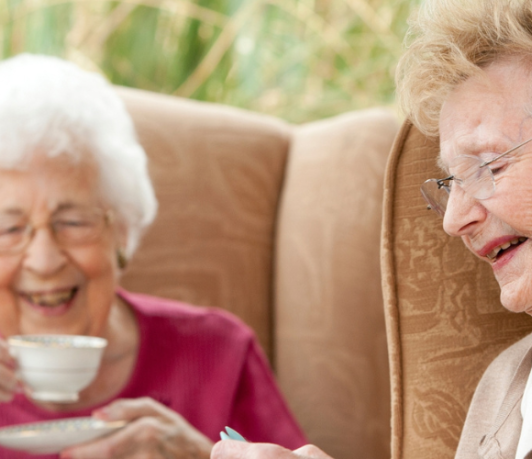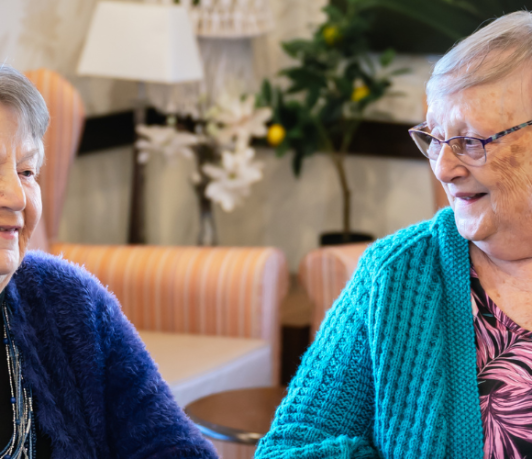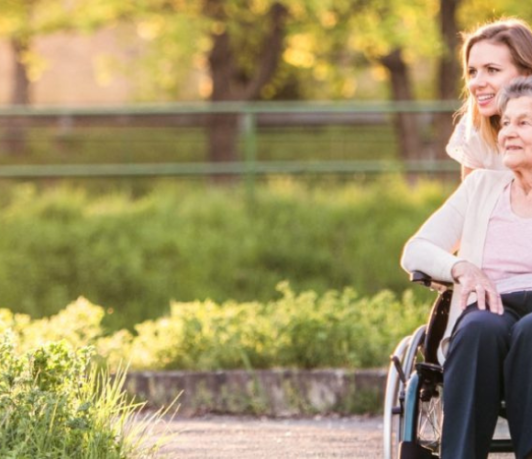How to Avoid Caregiver Burnout: Strategies for Self-care While Supporting Others
Home Care |

Supporting a loved one in a caregiving role is a noble undertaking, but it’s no secret that the responsibilities it entails can lead to burnout without proper self-care. So if you’re providing care for a loved one or friend, this blog is tailored to offer practical insights to help you prioritise your own wellbeing, especially amidst challenges.
Let’s delve into 20 key strategies to help you avoid caregiver burnout in the demanding yet rewarding role of a caregiver.
1. Acknowledge and establish limits
Recognise your limitations as a caregiver. Understand that it’s not feasible to take on every task, and that’s perfectly acceptable. Establish clear boundaries for yourself, ensuring you can provide optimal care without compromising your own health and wellbeing.
2. Distribute responsibilities effectively
Caring for someone shouldn’t be a solo mission. Engage other family members, friends, or explore professional support through home care services. Sharing the responsibilities not only lightens the load but also ensures a more sustainable and collaborative caregiving approach.
3. Prioritise regular respite
In your journey as a carer, it’s crucial to schedule regular breaks. Allocate time for short respites, whether it’s a leisurely stroll, a quiet coffee break, or a conversation with a friend. These breaks are vital for rejuvenation and preventing burnout.
4. Focus on realistic expectations
Setting realistic expectations is fundamental to avoiding burnout. Accept the constraints of the situation and establish achievable goals for both yourself and the person you’re providing support for. Recognise that caregiving is an ongoing process that requires adaptability and patience.
5. Make self-care a priority
Contrary to popular belief, prioritising self-care is not selfish but necessary. Ensure you maintain a healthy lifestyle by getting adequate sleep, consuming a balanced diet, and regularly participating in activities that bring you joy. A well-cared-for caregiver is better equipped to provide quality support.
6. Implement administrative strategies
Maintain order in your caregiving responsibilities to minimise stress. Utilise tools such as calendars, schedules, and reminders to stay organised. This not only facilitates smoother caregiving but also ensures that essential aspects, such as appointments and medication management, are handled efficiently.
7. Seek educational and emotional support
Knowledge is a valuable asset in caregiving. You may want to consider engaging with support groups, attending workshops, or participating in online forums to share experiences and gain insights from others facing similar challenges. Education and emotional support can empower you to navigate the complexities of caregiving more effectively.
8. Master the art of ‘saying no’
Understanding your limitations means learning to decline tasks when necessary. Saying no is not a refusal of your responsibilities but a recognition of your capabilities. It allows you to concentrate on pivotal aspects of caregiving without spreading yourself too thin.
9. Leverage technology for efficiency
In the age of technological advancements, embrace tools that simplify caregiving. Utilise smartphone apps and other technological aids for medication reminders, appointment tracking, and efficient communication. Integrating technology into your caregiving routine can enhance overall efficiency and organisation.
10. Understand the mental and physical impacts of COVID-19
The COVID-19 pandemic has added an extra layer of complexity to caregiving. Understand the mental and physical toll that pandemic-related stressors can impose. Stay informed about public health guidelines, vaccination, and take necessary precautions to protect both yourself and your loved ones.
11. Establish effective communication
Effective communication is a cornerstone of successful caregiving. Ensure open and honest dialogue with your loved one about their needs and concerns. Establishing clear channels of communication can help in managing expectations and prevent misunderstandings, contributing to a healthier caregiving dynamic.
12. Practice mindfulness techniques
Incorporate mindfulness practices into your routine to manage stress and promote mental well-being. Techniques such as meditation, deep breathing, or simple moments of quiet reflection can be powerful tools for maintaining emotional resilience.
13. Prioritise mental health
Caring for someone’s wellbeing includes caring for your mental health. The emotional demands of caregiving can take a toll, particularly during challenging times. You could even take a proactive approach to mental health by considering counselling or therapy to help navigate complex emotions and reduce the risk of burnout.
14. Foster social connections
Maintaining social connections is crucial for emotional wellbeing. Stay connected with friends and family members who provide a support network. Share your experiences and concerns, as having a reliable social circle can alleviate feelings of isolation and provide valuable perspectives.
15. Focus on your physical wellbeing
The physical toll of caregiving can’t be overlooked. Ensure you prioritise your physical health by incorporating regular exercise into your routine. Whether it’s a daily walk, gentle stretches, or more structured exercise, physical activity contributes not only to your wellbeing but also to your ability to provide effective care.
16. Utilise your time management skills
Efficient time management is a key skill for caregivers. Develop a realistic schedule that balances caregiving responsibilities with personal time. Prioritise tasks based on urgency and importance, and consider delegating when possible to other supporters. Effective time management can help prevent burnout by preventing a sense of overwhelming responsibilities.
17. Consider financial planning and support
Caring for someone often involves financial considerations. Understand available financial support options, such as government assistance programs, subsidies, or grants. Seek professional advice to create a financial plan that addresses the specific needs of caregiving, reducing potential stressors related to financial concerns.
18. Recognise the signs of burnout
Be aware of the signs of burnout, both in yourself and the person you are caring for. Symptoms may include persistent fatigue, changes in sleep patterns, increased irritability, or feelings of hopelessness. Recognising these signs early allows for proactive measures, potentially preventing burnout from escalating.
19. Cultivate hobbies and interests
Maintain a sense of identity outside of your caregiving role by cultivating hobbies and interests. Engaging in activities you enjoy provides a mental break and fosters personal fulfillment. Whether it’s reading, gardening, or pursuing a creative outlet, carving out time for your interests is essential for maintaining balance.
20. Practice resilience building
Building resilience is an ongoing process. Acknowledge challenges as learning opportunities and focus on developing a resilient mindset. Embrace setbacks as temporary and use them as stepping stones for personal and caregiving growth.
In summary
By incorporating these expanded strategies into your caregiving routine, you can proactively mitigate the risk of burnout and foster a sustainable and compassionate caregiving experience for both you and your loved one.
Remember, prioritising your well-being is not only beneficial for you but also ensures you can provide the best possible care for those who depend on you.
We’re here to support you
At Respect, we’re passionate about supporting older Australians to ensure the next phase of their lives are filled with purpose and possibilities.
So whether it’s through our network or aged care homes or our home care support options, we are here for you and your family whenever you need us. Your future should shine with meaning, comfort and conveniences — and with our support, you’re backed by over a century of care and consideration for the way you want to live.
We’re here to help! For more information about how to access a Home Care Package and get started with home care support, including the available opportunities and our range of services, download your complete step-by-step guide to in-home care.
Got questions or like to receive more support? Please reach our care at home advisors or call us on 1300 144 144 and choose “home care” as a service option.

Interested in learning more about our services?
Simply fill in the below form and one of our friendly team will give you a call within 48 hours.
Would you rather talk to us? Give us a call on 1300 144 144




